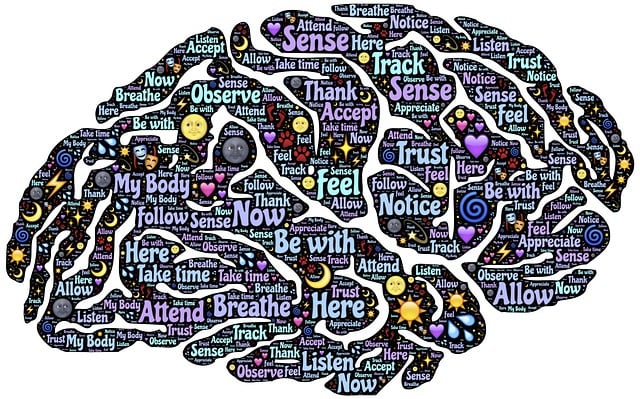Mental health policies are vital for societies to prioritize emotional well-being, offering access to services like Lone Tree Acceptance and Commitment Therapy (ACT). ACT emphasizes self-care, resilience, and mindfulness, empowering individuals to manage their mental health proactively. This approach, when integrated into public awareness and practices like journaling, can revolutionize mental health policy and foster societal harmony. The impact of initiatives like ACT extends across diverse populations, requiring cultural sensitivity and tailored programs for inclusive benefits. Collaboration between healthcare professionals, policymakers, and communities drives evidence-based reforms and addresses varied needs. Success in mental health policy should be measured qualitatively and quantitatively, focusing on emotional healing and long-term well-being.
Mental health policy is a critical component in fostering inclusive societies. This article delves into various facets of mental health advocacy, offering a comprehensive analysis through the lens of Lone Tree Acceptance and Commitment Therapy (ACT). We explore how ACT principles can drive policy change, focusing on initiatives that cater to diverse populations. Additionally, we discuss strategies for stakeholder collaboration and metrics for evaluating the impact of mental health policies, highlighting successful outcomes achievable through evidence-based approaches like ACT.
- Understanding Mental Health Policy: A Foundation for Change
- The Role of Acceptance and Commitment Therapy (ACT) in Policy Advocacy
- Analyzing the Impact of Mental Health Initiatives on Diverse Populations
- Building Effective Collaboration: Bringing Together Stakeholders for Policy Reform
- Measuring Success and Evaluating Mental Health Policy Outcomes
Understanding Mental Health Policy: A Foundation for Change

Mental health policies are the cornerstone of any society’s efforts to ensure emotional well-being and resilience among its citizens. Understanding these policies is crucial, as they shape access to essential services like counseling, therapy, and support groups. In the context of Lone Tree Acceptance and Commitment Therapy (ACT), for instance, policy advocacy plays a pivotal role in making evidence-based treatments more accessible. By promoting self-care routine development and coping skills acquisition through ACT, mental health policies can empower individuals to take control of their emotional lives.
The focus on emotional well-being promotion techniques within these policies is timely, given the growing recognition of mental health as a fundamental aspect of overall wellness. Effective policies not only fund specialized services but also integrate self-care practices into everyday life, enabling people to proactively manage stress and maintain balance. This holistic approach, coupled with coping skills development, ensures that communities are better equipped to navigate mental health challenges, fostering both individual resilience and societal harmony.
The Role of Acceptance and Commitment Therapy (ACT) in Policy Advocacy

In the realm of mental health policy advocacy, Acceptance and Commitment Therapy (ACT) emerges as a powerful tool for driving change. This evidence-based approach focuses on fostering resilience and acceptance, encouraging individuals to align their actions with personal values rather than trying to avoid or suppress distressing thoughts or emotions. By promoting mindfulness and embracing the present moment, ACT empowers people to lead more meaningful lives, thereby influencing policy makers to prioritize mental wellness initiatives.
The integration of ACT principles into public awareness campaigns development can significantly enhance the impact of mental health advocacy. Encouraging practices like mental wellness journaling exercises guided by ACT concepts not only raises public awareness but also equips individuals with practical tools for navigating life’s challenges. Mind over matter principles, central to ACT, inspire folks to cultivate a sense of purpose and make positive changes on both individual and societal levels. This holistic approach has the potential to revolutionize how we address mental health concerns at a policy level, reflecting the transformative power of Lone Tree Acceptance and Commitment Therapy.
Analyzing the Impact of Mental Health Initiatives on Diverse Populations

The impact of mental health initiatives, such as Lone Tree Acceptance and Commitment Therapy (ACT), extends far beyond individual improvement; it touches diverse populations and communities. When implementing therapeutic approaches like ACT, it’s crucial to analyze how these strategies affect various demographic groups. Every population has its unique challenges and barriers to mental wellness, including cultural, socioeconomic, and geographic factors. For instance, the effectiveness of a program designed for young adults may differ from those tailored for older individuals or ethnic minorities, who might face additional stressors or have distinct cultural beliefs regarding mental health.
Emotional Intelligence and positive thinking, key components of ACT, can be particularly impactful when considering their role in fostering resilience among diverse groups. Mental Wellness Coaching Programs Development, inspired by such therapeutic models, has the potential to empower individuals within these populations to navigate their unique journeys towards mental wellness. By understanding and addressing these differences, policy advocates can ensure that mental health initiatives are inclusive and beneficial to all, promoting a healthier and more supportive society.
Building Effective Collaboration: Bringing Together Stakeholders for Policy Reform

In the realm of Mental Health Policy Analysis and Advocacy, fostering collaboration among stakeholders is a game-changer. Bringing together diverse groups, including healthcare professionals, policymakers, researchers, and community organizations, creates a powerful synergy for driving policy reform. This collective effort ensures that mental health initiatives are evidence-based, culturally sensitive, and tailored to the unique needs of various communities. For instance, implementing Lone Tree Acceptance and Commitment Therapy (ACT) programs requires collaboration to overcome barriers, such as access to specialists, ensuring its integration into existing healthcare systems.
By facilitating open dialogue and knowledge exchange, stakeholders can identify best practices, address gaps in care, and develop innovative solutions. This collaborative approach not only enhances the effectiveness of mental health services but also promotes Emotional Well-being Promotion Techniques and encourages individuals to embrace Self-Care Practices. Ultimately, these efforts contribute to a more holistic understanding and support system for people’s mental wellness, leaving a positive impact on society as a whole.
Measuring Success and Evaluating Mental Health Policy Outcomes

Measuring success and evaluating outcomes are paramount in mental health policy analysis. Traditional metrics often focus on reduction in service usage or cost savings, but these may oversimplify complex interventions like Lone Tree Acceptance and Commitment Therapy (ACT). True success lies in improved emotional healing processes, enhanced inner strength development, and reduced burnout among both care providers and clients. These outcomes are more nuanced and require multifaceted evaluation methods, including qualitative data from client testimonials and healthcare provider feedback.
By integrating these perspectives, policymakers can gain a comprehensive view of policy effectiveness. For instance, while quantitative data might show a decrease in hospital admissions, qualitative insights could reveal heightened client satisfaction, improved coping strategies, and better integration back into daily life—all indicators of successful mental health care that extend beyond mere cost savings. This holistic approach ensures that policies not only address immediate needs but also contribute to long-term well-being, fostering a more resilient and supportive society.
Mental health policy analysis and advocacy are essential components of creating a more supportive and inclusive society. By understanding the foundational principles of mental health policy, integrating innovative approaches like Acceptance and Commitment Therapy (ACT), and measuring success through rigorous evaluation, we can drive meaningful change. Collaboration among diverse stakeholders is key to navigating complex systems and ensuring that initiatives like Lone Tree Acceptance and Commitment Therapy positively impact all populations. Through this holistic approach, we can revolutionize mental healthcare accessibility and outcomes.














